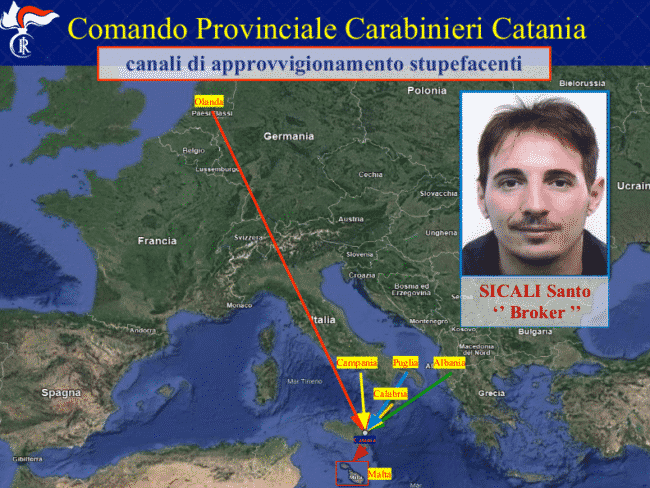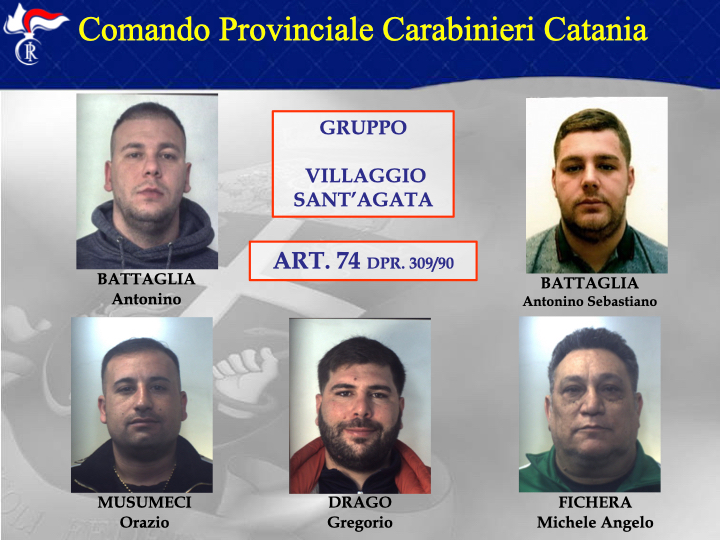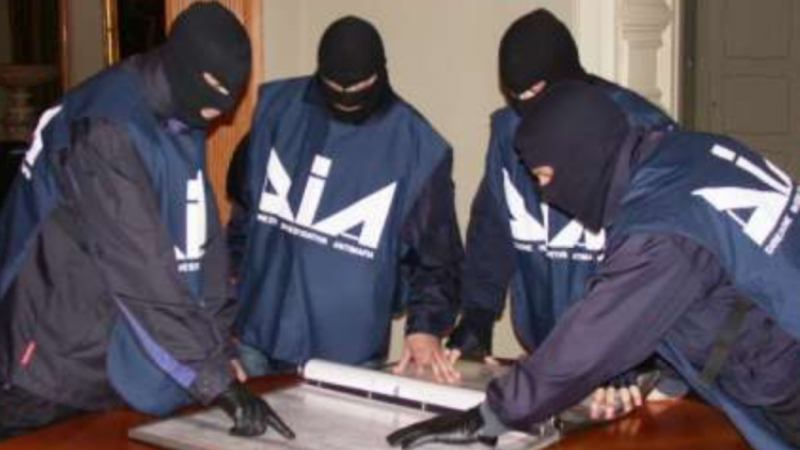A judge in Catania has sentenced 11 people, most with links to mafia clans, to an average of around 10 years each for trafficking cocaine, hash and marijuana to Malta, Catania and Syracuse. The drugs, according to Sicilian prosecutors, were from the Netherlands, Albania, Calabria and Puglia.
The sentences were delivered a year and two days after the 16 November 2021 anti-mafia operation ‘Alter Ego’ conducted by the Catania Carabinieri, and after investigations carried out by the Catania Public Prosecutor’s Office.
“This operation further reaffirms that the contiguity between the islands of Malta and Sicily is highly favourable for the development of illicit trafficking,” the Direzione Investigativa Antimafia’s (DIA) recently said in its report for the second half of 202.
The operation, the DIA said, allowed it “to outline the role played by some prominent figures in the Santa Paola and Cappello families – highlighting their relationships and contacts, as well as the dynamics of trafficking and supplying large quantities of drugs beyond borders, for the subsequent sale even to Malta”.
The investigations started four years ago when the mafia-linked traffickers were discovered in the village of Sant’Agata with several boxes of what was presumably pasta but which, in actual fact, were holding 242 kilos of hash.
Investigators quickly tracked down Orazio Musumeci and Antonino Sebastiano Battaglia as two apparent leaders of the multinational operation. Musumeci received an 11-year sentence on Friday from Investigating Judge Dorotea Catena while Battaglia, who investigators believe to be close to the Santapaola-Ercolano mafia clan, was sentenced to eight years and eight months.
Santo Sicali, known as ‘Spaccatello’ was meanwhile sentenced to nine years and four months in prison. During investigations, Carabinieri seized around €370,000 in cash and a ‘drug dealing ledger’ from his home. According to prosecutors, Sicali appeared to have led a normal life but, in reality, he was an independent middleman for the organised crime ring “behaving like a real broker capable of controlling prices, ensuring profits and quickly satisfying customer requests”.

One of the three who was arrested in 2018 in the raid that started the investigation, Gregorio Drago, was sentenced to 11 years and four months, while a ten-year sentence was meted out to Antonino Battaglia.

Other sentences handed down on Friday included four years and eight months imprisonment and a €12,000 fine for Salvatore Cambria; eight years and a €24,000 fine for Alfio Castagna; five years and eight months and a €24,000 fine for Giovanni Agatino Distefano; nine years and four months for Michele Angelo Fichera; 11 years and eight months a fine of €34,000 fine for Rosario Zagame, who investigators believe is close to the Cappello-Bonaccorsi family; and eight years and €34,000 fine for his son Nicolò Zagame.
Malta’s proximity to Italy, the ease with which customs controls are avoided, and the ins and outs that come with EU membership “has facilitated the ‘migration’ of various matrixes of Italian organised crime to Malta”, according to the Direzione Investigativa Antimafia’s report for the second half of 2021.
The DIA report, which is tabled in the Italian Parliament at the beginning of October, states that Malta’s “privileged” tax system and its business-friendly corporate regulatory framework “are factors that have favoured the considerable money laundering activities of various mafia clans”.

According to the DIA, Malta’s geographical proximity could, additionally, is also a leading factor in Italian mafia clans’, and in particular the Sicilian clans’, “preferred choice” of Malta as a place for their associates to lay low for periods of time.















So the Sicilian Magistrates arrest and jail Mafia leaders trading in Malta , and the Maltese AG and Police discuss how to save Muscat from the Kordin Hilton.
Well said comment